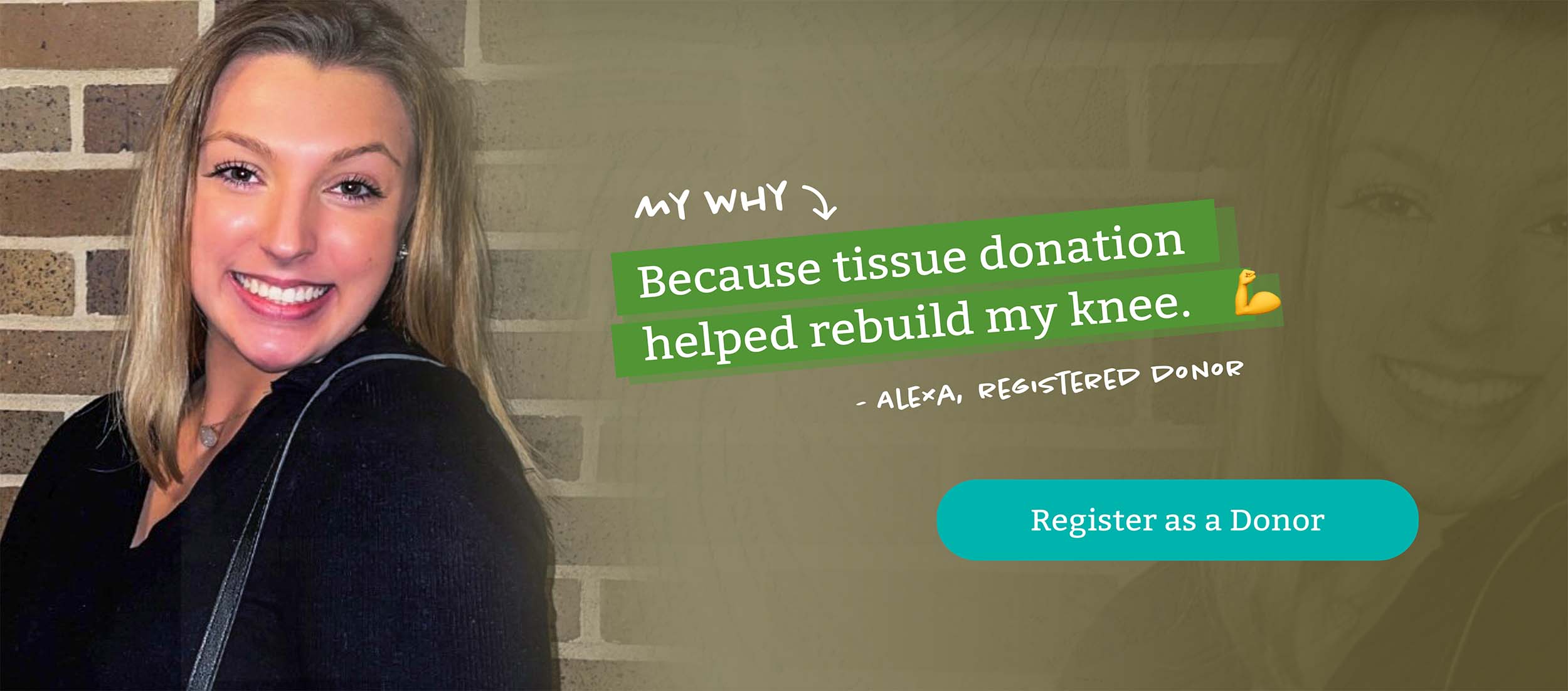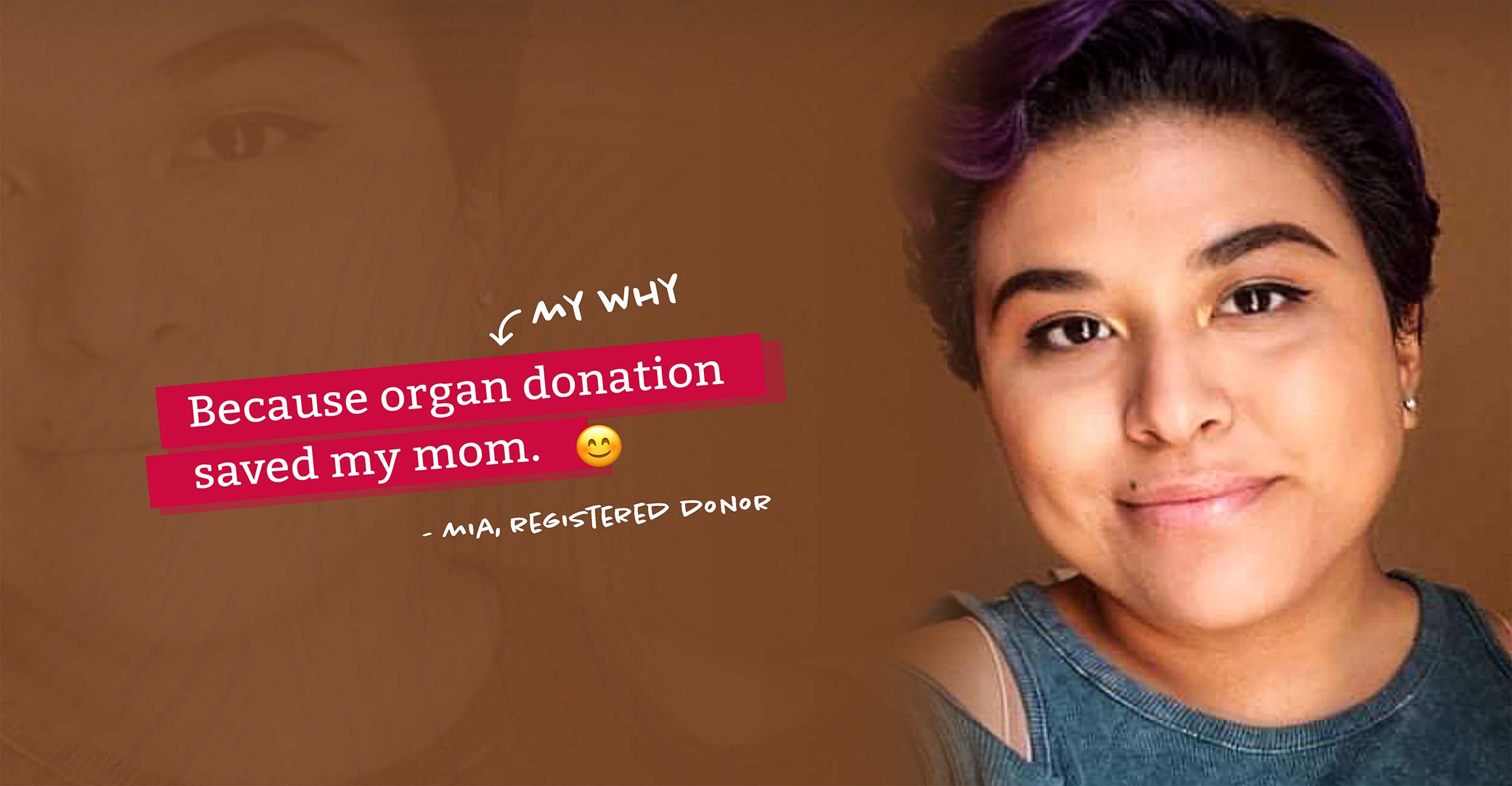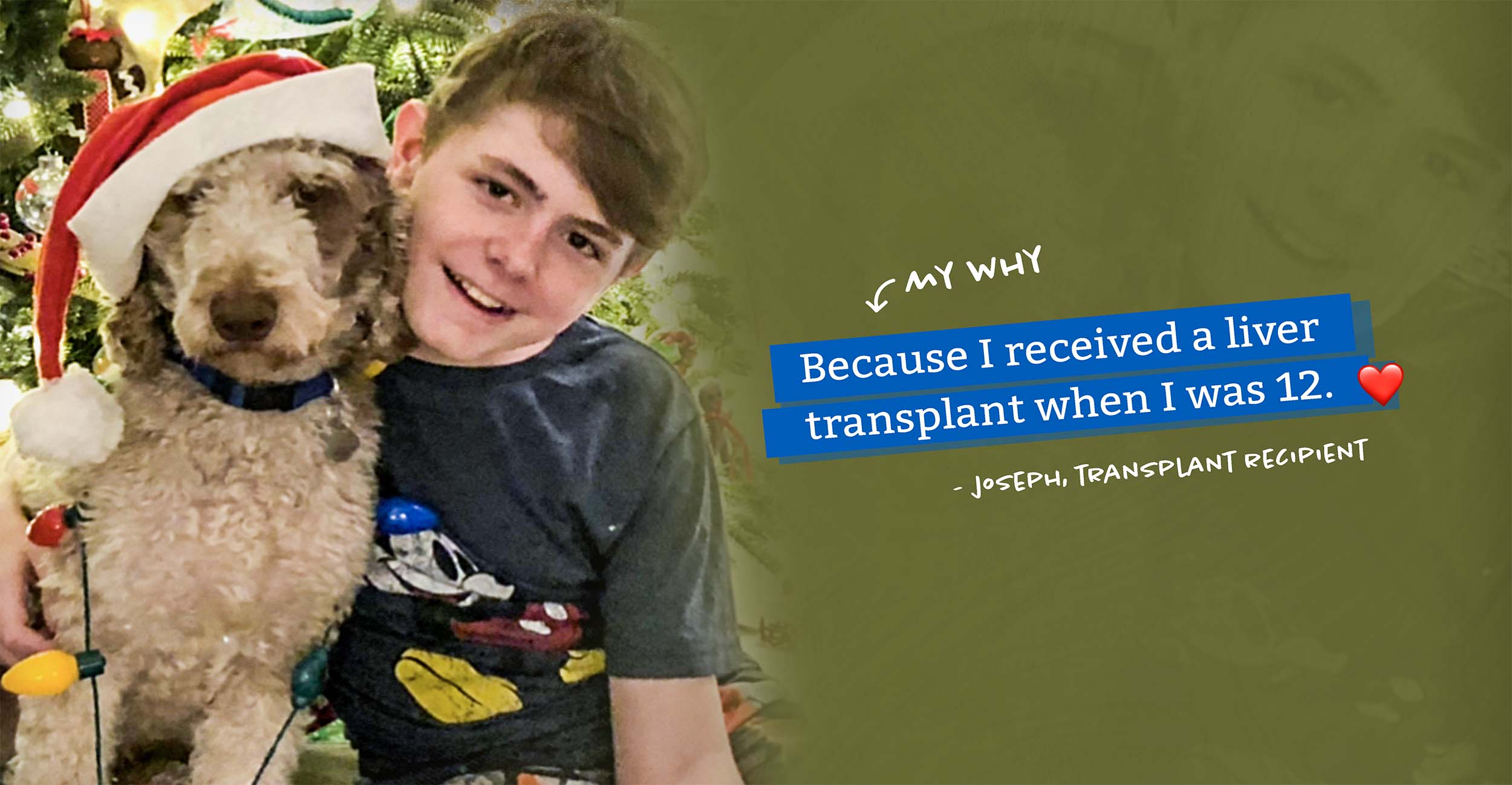
Questions? Let’s get to it.
I didn’t know the impact organ and tissue donation could make until donated tissue helped restore my knee after a severe injury. A selfless donor gave me a new beginning and, someday, I could be someone’s second chance as well. By asking questions and knowing more, I hope you’ll find your reason, too.

What does being a registered organ donor really mean?
Good question. The short version is that you give the okay for your organs and tissues to be used to save lives through transplantation after you’re deceased. You could save up to eight lives and heal up to 100.
Are there more people in need than there are organs available?
Yes. As of now, there are more than 100,000 people waiting on the national transplant list. Their exact medical conditions are as diverse as their ages, races and backgrounds. And their best hope are people who have registered to be organ donors.
What organs can be used in donation?
Everyone has the potential to donate their heart, two lungs, two kidneys, liver, pancreas and small intestine. The recipients could be a mother with heart failure, a son with a rare liver condition or even someone close to you.
Can someone be a donor even if they have a medical issue?
With a few exceptions (like active cancer), most medical conditions do not prevent you from being an organ and tissue donor. Doctors will make the final decision on which organs and tissues are suitable for transplantation. Even if a donor is only able to help one person, that’s one more person who can find healing and hope.

Life changer? Make it official.
If you could save a stranger’s life, would you? If you knew a daughter could see her mom live, or someone’s sight could be restored, would you want to help? I know from experience that someone in the future with a desperate medical need hopes you’ll become a registered donor.

Is tissue donation really that important?
One tissue donor can help heal up to 100 people. The cornea of the eye can be transplanted to repair sight. Tendons can restore movement after a tragic accident. Burn victims can receive skin. Even bones and veins can be used.
Are there requirements for registration?
The ONLY requirement to register as a donor is being 16 years old or older. Age, health concerns and lifestyle do not limit your ability to register or donate.
Should I tell my family that I’m an organ donor?
Absolutely. In fact, we encourage it. Discussing organ donation let’s your family know your wishes and may even help loved ones become registered donors as well.
Will my family have to pay for organ donation?
Nope. Live On Nebraska takes care of everything. Making the decision to save someone’s life should never cost a thing.

What’s your reason?
People assume that transplant recipients are usually older. Not me. I was 12 years old when an organ donor saved my life. One day, you could be the person who gives someone like me a chance for hope and healing.

Why is organ donation always on a driver’s license?
It’s a form of ID that can speak for you when it comes to organ and tissue donation. It’s also why people associate organ donor registration with the licensing office. However, everyone can also register online (spread the word).
Can someone else make the call when I’m gone? Why register now?
Losing a loved one is an emotional, tearful time. Asking for donation during this is a delicate matter. Many families appreciate knowing their loved one had already made the decision. You can wait, but like most things in life, being prepared makes a big difference.
If I’m a registered donor, will doctors still work hard to save me?
Doctors, nurses and paramedics have a mission to save lives. Donation is only considered after all possible efforts to save a life have been used and there are no other options.
What is living and deceased donation?
Deceased donation means the registered donor has passed away and has viable organs for transplantation. Living transplantation involves a healthy person giving a kidney (you only need one) or a section of liver to someone in need. Amazingly, the liver will grow back!
What if I want to change my mind later?
Unregistering is easy if you decide to change your mind. It happens and we promise not to judge.
What is Live On Nebraska?
Live On Nebraska an independent, non-profit organization responsible for promoting the cause of organ donation and coordinating donations with hospitals and donors in the state of Nebraska and Pottawattamie County, Iowa. There are 57 other organizations across the U.S. just like us. We also help families during their time of grief, celebrate donors as heroes and see the lives of transplant recipients transform.
Have more questions?
Send us your thoughts and questions about organ and tissue donation.
We’d love to answer them all.
